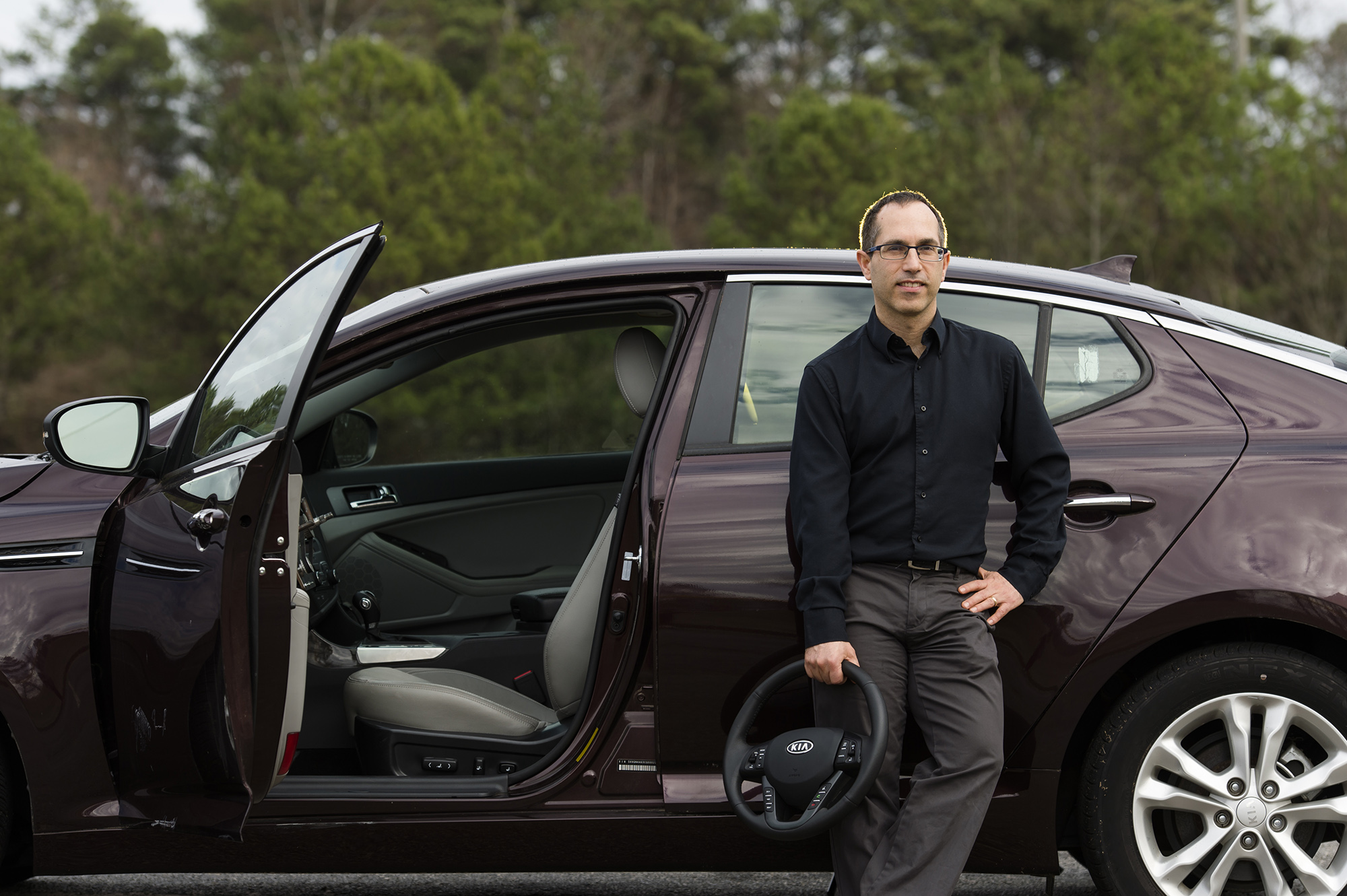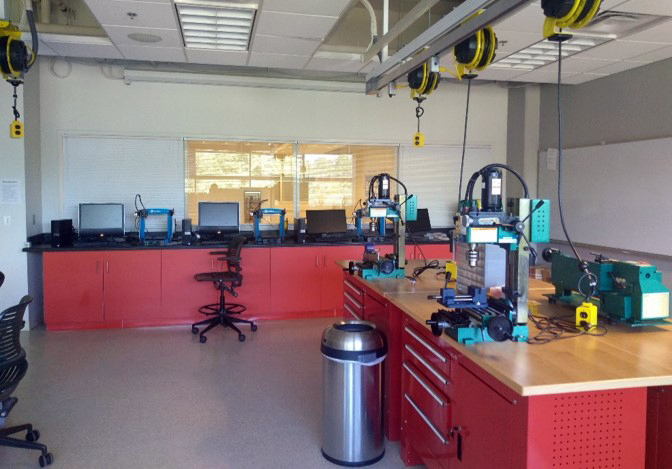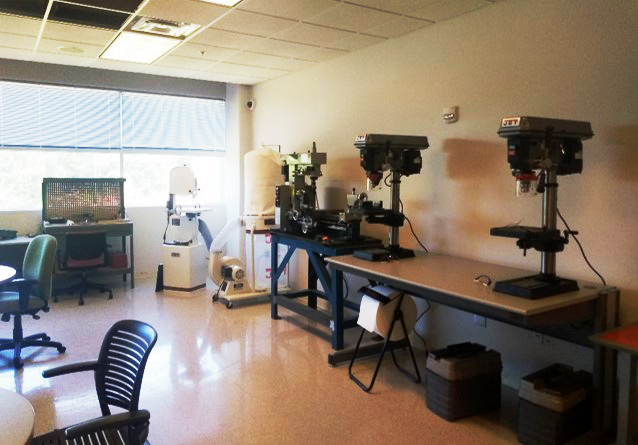Mechatronics Engineering Professor Reimagines Hands-On Undergraduate Research Experience Amid COVID-19
MARIETTA, Ga. (Jul 20, 2020) — Every KSU researcher, both students and faculty, has had their research impacted when Kennesaw State University transitioned to online activities due to COVID-19. For Kevin McFall, assistant dean for research initiatives and graduate programs in the Southern Polytechnic College of Engineering and Engineering Technology, making the transition to online research activities would prove to be difficult as his research focus is on autonomous vehicles.
McFall, also an associate professor of mechatronics engineering, had to quickly adjust to the new research environment and think through how to deliver a hands-on research experience in a virtual environment.
to deliver a hands-on research experience in a virtual environment.
“The timing was really unfortunate,” McFall said. “The research project I was doing had a final wrap-up session scheduled for March 13, the week KSU went virtual. I was a few days away from having this big wrap-up seminar.”
His students are still able to conduct research, just not to the same extent as they would in a face-to-face setting. When the students were on campus, they were creating a series of tutorials on how to use autonomous vehicle equipment such as light detection and ranging devices that have been incorporated in the new MakerSpace, a collaborative workspace for students to discover new applications for the technology.
McFall said that his students have been developing videos and written material that
 will be put in the MakerSpace, located in the Engineering Technology Center, once
the university resumes face-to-face activity. He said that finding ways to conduct
research virtually has been tricky but just like with instruction, alternative methods must be
implemented.
will be put in the MakerSpace, located in the Engineering Technology Center, once
the university resumes face-to-face activity. He said that finding ways to conduct
research virtually has been tricky but just like with instruction, alternative methods must be
implemented.
Not being able to meet students in person was a big adjustment for McFall, making the monitoring of progress far more difficult. Certain areas of the research, such as working on a self-driving car, had to be postponed until students could return to campus.
“Currently, there are quite a bit of limitations, including social distancing and face coverings, that will likely impact research in the fall,” McFall said. “However, this experience might help open things up and provide more opportunities through a virtual format.”
He said that now that he has been working virtually for the past several months, he has
 still found ways to be productive such as having conference calls on Microsoft Teams to
discuss his research. In addition, McFall has been able to pursue more research possibilities during
the shift to online activity.
still found ways to be productive such as having conference calls on Microsoft Teams to
discuss his research. In addition, McFall has been able to pursue more research possibilities during
the shift to online activity.
“I was approached by an undergraduate student in India who wanted to do a virtual internship,” McFall said. “Before COVID, I would have said that I did not think we could make that happen but now there is no reason to think otherwise. We could meet virtually, which is how I have been talking with my students anyway.”
“The impact of COVID-19 has made people reimagine both their research and education,” McFall said. “As a result, I think there are going to be some lasting changes and new innovative ideas to explore.”
— Landon Mion











